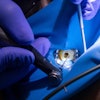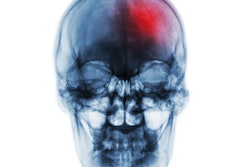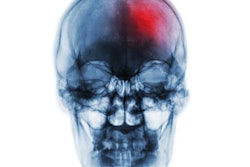
Patients treated for an irregular heart rhythm may be more likely to maintain healthy heartbeats if they better controlled their periodontitis, according to a new study published on April 10 in the Journal of the American Heart Association.
Those with atrial fibrillation (AF) who underwent catheter ablation, a procedure that uses heat to kill the heart tissue that causes an irregular heart rhythm, and then had their periodontitis treated were less likely to have their abnormal heartbeats return, the authors wrote.
"Periodontitis should be recognized as a modifiable risk factor of AF, and periodontal examination is beneficial for AF ablation candidates," wrote the authors, led by Dr. Shunsuke Miyauchi, an assistant professor at the Health Service Center at Hiroshima University in Japan.
Worldwide, the prevalence of AF, the most common arrhythmia that raises the risk of stroke, heart failure, and death, has been increasing. By 2023, more than 12 million people in the U.S. were estimated to have AF.
Currently, obesity, physical inactivity, disordered breathing during sleep, diabetes, hypertension, hyperlipidemia, tobacco intake, alcohol consumption, and caffeine consumption are modifiable risk factors for AF. At this time, the American Heart Association doesn't acknowledge oral health as a risk factor for cardiac disease. However, it recognizes that oral health may be an indicator of overall health.
To explore whether treating gum disease improves the outcome of AF ablation, a prospective nonrandomized study was conducted with 288 patients. Patients underwent periodontal inflamed surface area (PISA) measurement and were advised to receive gum disease treatment in the blanking period. Of the patients, 97 underwent catheter ablation and periodontitis treatment and 191 underwent ablations, according to the study.
During the follow-up period of between eight months and two years, AF recurred in 70 patients (24%). Patients whose abnormal heart rhythms recurred had higher PISA scores than those who did not (456.8±403.5 versus 277.7±259 mm2, p = 0.001). These patients were categorized into high-PISA (> 615 mm2) and low-PISA (low‐PISA (<615 mm2) groups, the authors wrote.
In patients with a high PISA, those who had their gum disease treated showed significantly fewer AF recurrences (p = 0.01, log‐rank test). The adjusted hazard ratio of periodontal treatment for AF recurrence was 0.393 (95% confidence interval, 0.215-0.719; p = 0.002), they wrote.
Nevertheless, the research had limitations, including the design of the study. To confirm these results, a multicenter randomized study should be conducted, the authors wrote.
"PISA (periodontal inflamed surface area) is a hallmark of AF recurrence, and periodontal treatment improves the AF ablation outcome, especially for those with poor periodontal condition," Miyauchi and colleagues wrote.




















